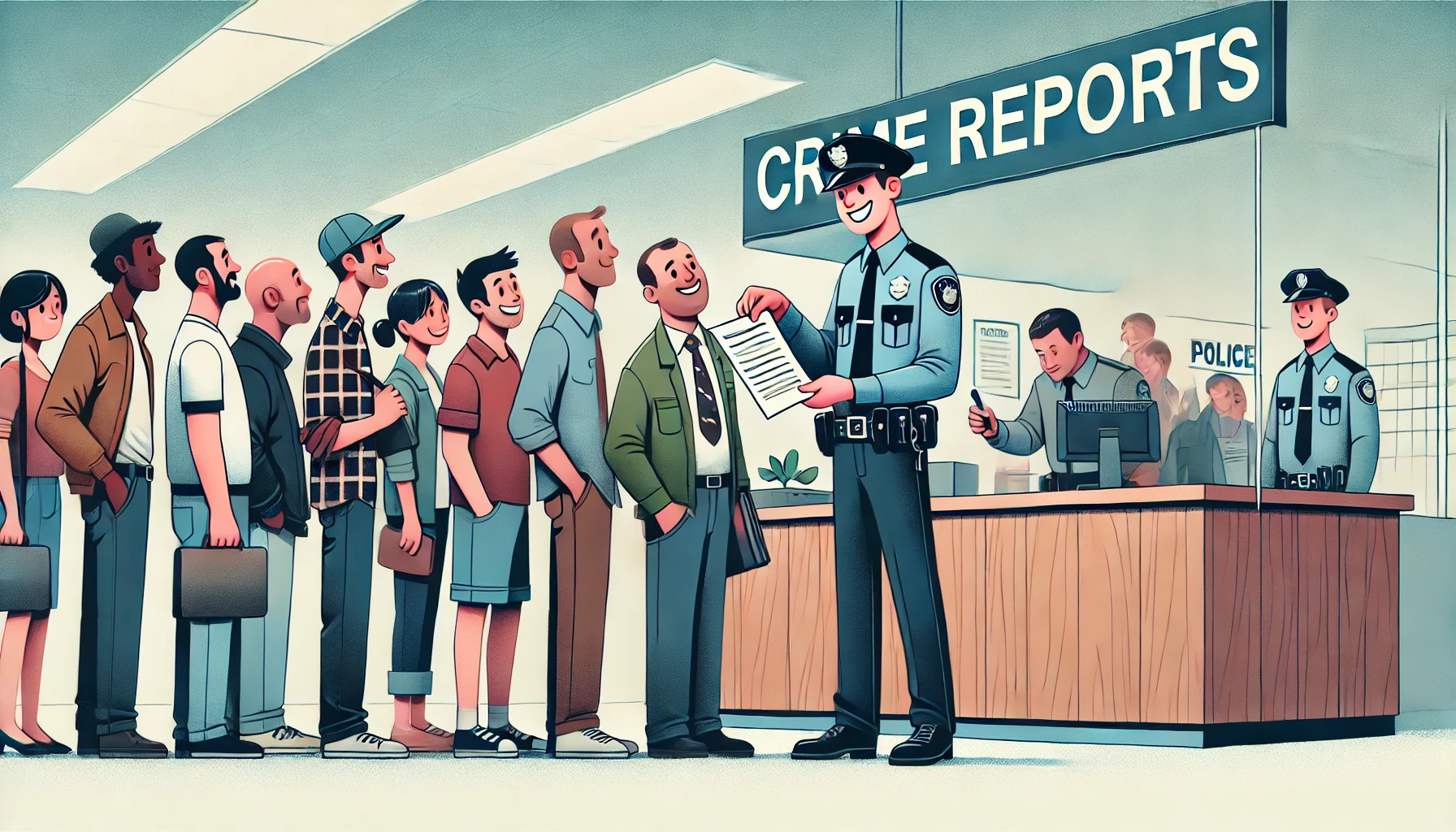A vehicle theft crime number is not evidence that a theft occurred.
to the desk, line on the left, just one number. Next?”
The value of a police reference number, indicating a report of a crime has been officially registered, diminishes if it is obtained with minimal effort or verification. Currently, a police reference only evidences someone having phoned a constabulary, told their story and been asked some ordinary questions, many likely to determine which social groups they fit for management information presentations. The phone call probably ended along the lines of ‘we will add your VRM to the PNC LoS register and check ANPR’ (maybe they will do this). Read more here.
Accepting allegations at face value is a product of legal, historical, and social shifts designed to foster trust, victim support, and procedural integrity. While the initial acceptance of an allegation may not imply an unquestioned acceptance of truth, the lack of probing, ignoring questionable accounts, the prompt closure of crimes without investigation and a seeming unwillingness to reopen or address concerns suggest a lack of interest/attention in the report’s accuracy.
The outcome: pop the VRM on the PNC LoS register, close the report and wait … hope the vehicle turns up. Then … move on to any number of pressing priorities, performance indicators … an excessive application of ‘proportionality’? This lackadaisical approach has further ramifications:
When crime numbers are issued without thorough (any?) verification or substantial evidence, it can undermine the credibility of crime statistics and reporting mechanisms. Too easily obtained, they may no longer reflect the actual level of criminal activity, potentially leading to:
- Inaccurate Crime Statistics – figures become inflated with unverified incidents, giving a distorted view of crime rates. This misrepresentation can misinform public policy and law enforcement resource allocation.
- Decreased Trust in the System – if it is perceived crime numbers are easily obtainable, faith in the accuracy and seriousness of crime reporting diminishes. This can also result in a reduced sense of accountability in the police system as the crime numbers no longer represent thoroughly vetted incidents.
- Risk of Misuse and Fraudulent Claims – references can be exploited for fraud purposes. This risk is particularly relevant in insurance claims, where crime numbers are often required for compensation related to theft, damage, or loss.
The ability to obtain a crime number without rigorous (any?) verification can lead to:
- Increased Insurance Fraud – easily obtainable crime numbers can assist the progression of fraudulent insurance claims. Increased premiums may arise from the costs associated with investigating these matters. A potential knock-on effect is greater consideration by insurers or their representatives; every claim must be subject to more scrutiny.
- Diversion of Police Resources – if crime numbers are issued too freely, police resources may be diverted to investigating untrue matters (vehicle theft example). However, this does not appear to apply to vehicle theft – resources and public funds are not allocated, and allegations are not investigated.
- Lack of deterrent – easy access to official documentation (like crime numbers) without sufficient verification lowers deterrence for fraudulent activities and may increase the occurrence. One of the implicit values of crime reporting and obtaining a crime number is that it can deter frivolous or false claims. If crime numbers can be obtained too easily, the deterrence effect weakens because people may feel there are minimal consequences to making false or exaggerated reports.
- Devaluation in Official and Legal Contexts – Crime reports serve as essential documentation in legal processes, such as in court cases. If crime numbers are issued too readily, their value as reliable, serious indicators of criminal incidents is reduced, potentially leading to an erosion of confidence placed in crime reports; easily obtainable, they may no longer hold weight as evidence in court, complicating judicial processes where such verification is necessary.
In conclusion, the value of a crime number is in its credibility as a verified record of a crime. When crime numbers are easy to obtain, they risk losing their intended function as reliable markers of criminal activity. This ease can lead to inflated crime statistics, increased fraud, and decreased public trust in both the police and justice systems. Ensuring rigorous, albeit victim-sensitive, processes for issuing crime numbers preserves their utility, strengthens deterrence, and maintains the integrity of crime reporting.


1 thought on “Crime Number Devaluation”